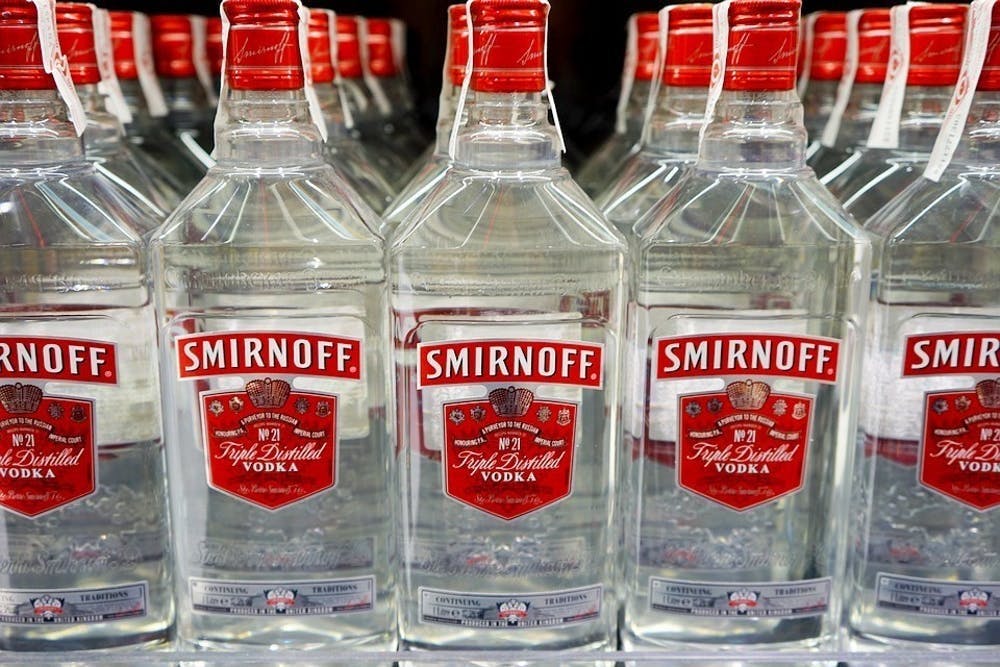A man opens his fridge, takes out a beer and starts to drink it. He then walks across the street, sipping his beer along the way, to talk to his neighbor about the upcoming football game against Florida State. Under current Virginia law, this man is guilty of a Class 4 misdemeanor, and if convicted of the offense, he could be fined up to $250.
The above example outlines the irrationality of the Commonwealth’s public drinking laws, which prohibit anyone from drinking or offering alcohol in a public place not licensed for alcohol consumption. The man has done no harm to anybody, including himself, and was at no great risk of doing so. So for what exactly would he be punished?
One may argue that this single example of public drinking is okay, but if every of-age adult is allowed to drink in public, the streets would be filled with obnoxious drunk people. This, in turn, would dampen everyone else’s ability to enjoy public spaces. If this argument were true, we would concede that there is a legitimate interest in banning drinking in public. However, the repeal of public drinking laws would not entail a nullification of other laws, such as those against public drunkenness or disorderly conduct in public places. With these other laws in place, there is no need to fear droves of drunkards descending upon Charlottesville and disrupting peaceful enjoyment of common spaces.
A different argument may be that public drinking laws do in fact prevent harm to others. A proponent of this line of reasoning could point to evidence that alcohol is linked with an increase in the number and severity of violent incidents. Coupled with the fact that a large number of interpersonal interactions occur in public places, this would create more opportunities for destructive behavior. So, the argument concludes, a ban on public drinking does reduce harm to individuals, even if there are many innocuous examples of drinking.
Yet, this position is unacceptable because it criminalizes something simply because it makes a person statistically more likely to commit a future offense. If we accept this logic, then it seems that we also can and should criminalize dropping out of high school and having alcoholic parents because both have been linked with increases in crime. Ultimately, we must allow individuals to break statistical trends and lead a lawful, pro-social life, rather than pigeon-hole them into actuarial categories. To do otherwise would be to perform a grave injustice to individual freedom.
Additionally, even proponents of restrictive laws on public drinking admit that the efficacy of these policies is far from settled and requires further research. When the evidence being used to justify these policies is incomplete, it makes even less sense to rob someone of their individual freedoms in the name of “public welfare.”
Lastly, many argue that public drinking laws protect minors. Some have asserted that allowing people to drink alcohol in public may promote underage drinking in certain contexts. The reasoning goes that if we allow people to drink in public, it will increase exposure, accessibility and desire to drink among underage individuals. Since, according to the Centers for Disease Control and Prevention, underage drinking results in around 4,300 deaths and cost the U.S. economy over $24 billion in 2010, the argument goes that we are within our bounds to try to prevent further incidents of underage drinking.
However, policymakers’ biggest concern should unquestionably be the prevalence of binge drinking among minors. The CDC reports that over 90 percent of the alcohol consumed by people aged 12-20 is consumed while binge drinking and that underage drinkers consume more per sitting than adult drinkers. We think that minors being able to see adults drink moderately in public will, if anything, provide young people with an example of how to drink responsibly rather than encourage them to drink more. If so, then far from providing reason to uphold these laws, the issue of underage drinking would give us even more reason to call for the end of public drinking laws. Moreover, given that binge drinking is such a huge issue on college campuses, authorities should direct their efforts toward educating students and ensuring their safety — not criminalizing what is often harmless behavior.
At the end of the day, these laws undoubtedly have negative impacts on students at the University, who may find themselves facing a fine and a criminal record. Considering the nonsensical outcomes these restrictions can have and their apparent lack of valid justification, we call for the repeal of public drinking laws in the Commonwealth and around the country.
The Cavalier Daily Editorial Board is composed of the Executive Editor, the Editor-in-Chief, the two Opinion Editors and their Senior Associate. The board can be reached at eb@cavalierdaily.com.







